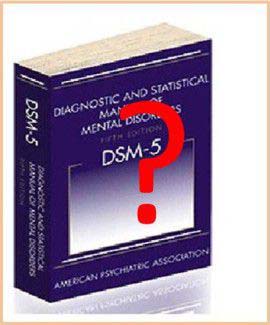4 Human Truths about DSM-5 & Individual Psychotherapy

Since 1952, the APA’s Diagnostic Statistical Manual [DSM] has been key to psychiatry and psychology in North America, and has had a profound influence on much individual case studies.

Yet, with the upcoming release of version 5 [“DSM-5”] the validity and scientific authority of this mainstay is under intense scrutiny. What does this mean for individual case studies?
[hs_form id=”17″]
1. NIMH: DSM Has Failed Patients
In recent days, Dr. Thomas Insel, the head of the NIMH, the largest funder of psychiatric research in the U. S., announced that NIMH would not fund research projects relying exclusively on DSM criteria, due to a lack of clarity and objectivity concerning the DSM’s categories. Among other things, he stated that,
“Unlike our definitions of ischemic heart disease, lymphoma, or AIDS, the DSM diagnoses are based on a consensus about clusters of clinical symptoms, not any objective laboratory measure. [italics mine]…
While DSM has been described as a ‘Bible’ for the field, it is, at best, a dictionary, creating a set of labels and defining each….
Patients with mental disorders deserve better.”
This is a very serious blow to the DSM-5, a mere 2 weeks before its release.
2. But Biological Psychiatry Isn’t A Total Solution
Dr. Insel and NIMH have concrete suggestions as to how to overcome the lack of true scientific depth in the DSM:
“Mental disorders are biological disorders involving brain circuits that implicate specific domains of cognition, emotion, or behavior;…
Mapping the cognitive, circuit, and genetic aspects of mental disorders will yield new and better targets for treatment.”
While all would welcome advances in neuroscience, it seems that Dr. Insel sees all “mental disorders” as reducible to biological states of affairs that can be mapped and described. If so, many in his and related professions would not entirely concur.
Are “mental disorders” simply biological states of affairs that can be fully understood and addressed on that level alone?
3. Still Something Missing
It would certainly seem that there’s more. There is the whole vast area of the individual’s subjective experience.
Dr. Eric Maisel regards the upheaval around DSM-5 as “the beginning of a movement in the direction of a smarter and more truthful understanding of human distress”. However, as he states, that happy outcome can only occur if the science of the psyche takes adequate account of the inner states of the individual — his or her inner life.
He goes on to state what should be obvious: the central fact of individual therapy is that a human being is involved here.
From a specifically Jungian place, we might wish to add that to address a specific human being is to address a unique phenomenon, whose essence will never be completely classifiable.
4. The Irreduceability of the Human Individual
Key to the healing of psyche is the individual human being, with his or her unique journey. Empirical science will no doubt continue its inquiries, but as Eric Maisel reminds us, the factor that must never be lost sight of is the inner life of the individual human being. This is the heart and soul of individual case studies from a depth perspective.

Lisa Fladager
Brian – So well said, and I concur. The missing piece in all of this hoopla has been the subjective human experience. As wonderful as neurobiology may be, we are not reducible to mere biology. I believe that biology and human experience coarise. We are in dangerous waters if we assume that mental conditions are “caused” by biology alone… Thanks for the post. Lisa